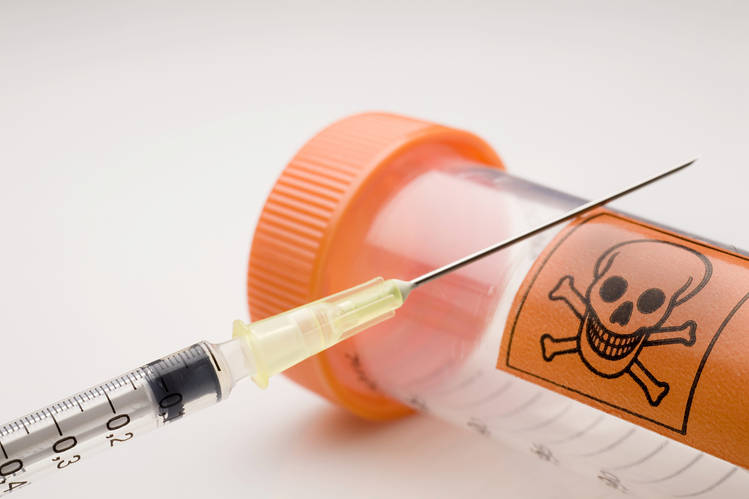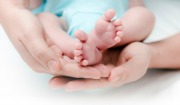
Northern Ireland’s Attorney General is to take the Ashers Bakery case to the UK Supreme Court. While Ashers’ owners the McArthur family continue to consider their next move against the discrimination finding against them in the so-called ‘gay cake row’, a spokeswoman for John Larkin QC responded to a query from The Belfast Telegraph newspaper that the Attorney General is to take the matter further. “I can confirm that an application for leave to appeal to the Supreme Court has been listed for hearing on November 22,” she said. Reacting to the development, the Christian Institute, which has supported the McArthurs, said: “[Mr Larkin] has unique constitutional powers to raise the key issues with the Supreme Court and the very fact that those issues are now being raised shows how important this case is and how far-reaching the consequences of it may b

The Irish Human Rights and Equality Commission (IHREC) has criticised the Government for not including a provision to prevent faith schools prioritising children of their faith during the admissions process. In a submission to all members of the Oireachtas on the Education (Admissions to School) Bill, the IHREC argued that “The Equal Status Act 2000 be amended to give effect to the principle that no child should be given preferential access to a publicly funded school on the basis of their religion”. In a series of eight recommendations, the body argues for respect for ‘greater diversity’ in schools together with safeguards on the communicating of information on religions that “avoids indoctrination”. Responding to the Human Rights Commission’s submission Minister for Education Richard Bruton said its observations would be considered. Minister Bruton said the Dáil had agreed that any amendment to ban discrimination on religious grounds in school admissions would proceed separately to the current Bill.

A Bill aimed at legalising euthanasia in the state of South Australia has been defeated in the State parliament. The Death with Dignity Bill 2016 was the second such Bill debated by legislators this year, but the first to pass a second reading by 27 to 19 votes. Its provision called for assisted suicide for those unable to take a lethal drug themselves. However, the legislation provided no further safeguards once a suicide application was approved, including any requirement that an authorised person be present at an assisted suicide. Despite such concerns the final vote 23 votes to 23. The Bill was ultimately struck down by the deciding vote of the parliamentary Speaker.

College students in Britain seeking to run pro-life clubs face growing hostility and censorship, according to the Alliance of Pro-Life Students (APS). On its blog, the APS reports that it is currently working with three pro-life groups on separate university campuses who face opposition to the establishment of such groups, or the disbandment of those already in existence. In one case, at Newcastle University, opponents to pro-life groups claimed such a club would be a discriminatory group that alienates and will make many young women feel unwelcome on campus”. The university’s Student Union ultimately rejected this argument. “These constant attacks on the free speech of students across England, Wales and Scotland highlights the need for pro-life leaders on campus,” APS said.

A British-based barrister has warned that the Ashers Bakery discrimination judgement risks the restriction of freedom of conscience and speech for all. Writing on the UK Human Rights Blog, Alasdair Henderson states: “Discrimination law is supposed to be about protecting people, not ideas or words”. He added that the reasoning of the Court of Appeal could have repercussions beyond Ashers, including driving people “with any deeply-held beliefs out of all kinds of businesses…There must be a better way of balancing competing rights in a diverse, plural society”, he concluded.

Legislators in Mexico have blocked a government proposal to extend same-sex marriage provision across the country. The Commission on Constitutional Matters voted 18-9 against such a move, thwarting the initiative of President Enrique Peña Nieto. The commission argued that such an extension would violate the right of individual states to set their own civil registry rules. Same-sex marriage is currently legal in 11 of Mexico’s 31 states. The National Front for the Family, which organised mass demonstrations across the country when President Nieto first proposed the extension, is now calling on the nation’s Senate – via a citizens’ initiative – to enshrine traditional marriage as between one man and one woman in the constitution.

President-elect Donald Trump has pledged to stand over his pro-life campaign promises during the US election campaign, but says the issue of same-sex marriage “is settled law”. In his first television interview since winning the presidency, Mr Trump insisted “I’m pro-life,” and, when pressed on nominations to the Supreme Court, added, “My judges will be pro-life.” On the Roe v Wade ruling which originally extended abortion provision in the United States in 1973, Mr Trump said only that matter “will go back to the states”. Proving himself more liberal on LGBTQ issues, Mr Trump said that “I have been in their corner” and professed himself “fine with that” on same-sex marriage.

Britain’s Crown Prosecution Service (CPS) has been accused of not pursuing a case involving sex-selective abortion from fears of being labelled ‘racist’. The accusation has been made by human rights activist Mandy Sanghera who advises the government on tackling ‘honour-based’ violence among minority communities. She has revealed that prosecutors failed to act in a specific case involving a woman forced by her family to procure an abortion of an unborn female child out of political correctness concerns, despite the willingness of the victim to pursue the case. “She felt [the case had been] abandoned for cultural reasons. Her having that termination was the nail in the coffin after all the psychological abuse. When she went and asked for help she didn’t get it.” Had the CPS taken up the case, from 2014, it could have led to the first prosecution for sex selective abortion in Britain

